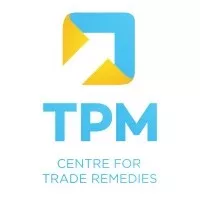- within Antitrust/Competition Law topic(s)
- in Nigeria
Mauritius has recently enacted the Trade (Anti-dumping, Countervailing and Safeguards Measures) Act, 2022. The new act repeals the preceding Trade (Anti-dumping and Countervailing Measures) Act, 2010, with the aim of bringing all trade remedial measures under a single umbrella legislation. A major development under the new Act is the introduction of safeguard measures and the establishment of a dedicated Trade Remedial Investigations Authority. Further, the Act also provides explanations that were previously absent from the 2010 Act.
Mauritius replaced their Trade (Anti-dumping and Countervailing Measures) Act, 2010 and introduced the Trade (Anti-dumping, Countervailing and Safeguard Measures) Act, 2022. The 2022 Act has introduced the application of safeguard measures on imports, which were not available under the previous law. Further, the new Act seeks to modify the application of trade remedial measures available to its domestic industry.
Introduction of Safeguard measures
The most significant addition under the new law is the introduction of safeguard measures, which are also referred to as "emergency" actions. Safeguard measures can be imposed to remedy sudden increase in imports of a product, which has caused or threaten to cause serious injury to the domestic industry. These actions generally take the form of quantitative import restrictions or duties. In addition to the general procedural provisions, Parts VI, VIII, XI, XV and XVII of the Trade Act 2022 provide for specific provisions dealing with safeguard investigations, which include –
- Initiation of safeguard investigations
- Safeguard investigation procedures
- Preconditions for imposition of a safeguard measure
- Imposition, collection, and administration of safeguard measures
- Duration and review of safeguard investigation
The earlier Act did not provide for imposition of safeguard measures thereby preventing the domestic industry from invoking the remedy available. Under the Trade Act 2022, the Trade Remedies Investigating Authority is empowered to impose definitive safeguard duty and quantitative measures, including imposition of provisional measures.
Under the Trade Act 2022, where a product has been subject to a safeguard measure for a period of time, any safeguard measure can be re-applied to such product only after a gap of 2 years or a period equal to half the duration of the original measures, whichever is lower. This is in contrast to Article 7.5 of the Agreement on Safeguards which prohibits re-imposition of measures on a product for a period equal to the total duration of the previous safeguard measures. Therefore, it appears that the provision adopted by Mauritius may not be consistent with the requirements under the Agreement on Safeguards.
Explanations added for Anti-dumping and Countervailing duty provisions
The majority of the provisions in regard to anti-dumping and countervailing duty investigations as provided in the Trade Act 2010 have been retained in the Trade Act 2022, though certain explanations have been added. For instance, the 2010 Act did not provide the definition for 'domestic industry', which has now been defined under Section 5 of the Trade Act 2022.
Similarly, Trade Act 2010 provided that the domestic sales prices of an exporter can be disregarded in case there exists a particular market situation in the home market of the exporter. However, the term 'particular market situation' was not defined therein. The Trade Act 2022 defines particular market situation under Section 3 as a condition in the home market where the following situations exist -
- The prices are artificially low,
- There is significant barter trade,
- There exists government intervention,
- The product is a by-product or waste in the exporting country but is exported a primary product to Mauritius and
- There are non-commercial processing arrangements.
Establishment of Trade Remedies Investigating Authority
Under the Trade Act 2010, the investigating authority referred to a single person, the "Director of Trade Policy" who was part of International Trade Division, Ministry of Foreign Affairs. However, a Trade Remedies Investigating Authority has been introduced as a new addition under the Trade Act 2022, which would be a fair and impartial body to investigate allegations of unfair trade practices and to recommend remedial actions to the government. The Authority shall consist of Chairperson, a Vice-Chairperson, representatives from Ministry of Commerce and Consumer Protection, Ministry of Industry and Customs and a law officer designated by the Attorney General, in addition to the other members assisting in the investigation process. The Act provides for that the members of the Authority are prohibited from engaging in certain activities to ensure an impartial investigation process. Finally, the Authority is required to submit an Annual Report for each financial year which would be presented before the legislative assembly.
While the Act's broader scope and the establishment of a dedicated Trade Remedy Investigation Authority are noteworthy achievements, certain aspects warrant further examination and alignment with international agreements. The Act represents a significant stride towards protecting domestic producers, particularly through providing for imposition of safeguard measures, and will facilitate Mauritius' continued economic ascent while preserving robust and equitable trade relations with its international counterparts.
The content of this article is intended to provide a general guide to the subject matter. Specialist advice should be sought about your specific circumstances.



